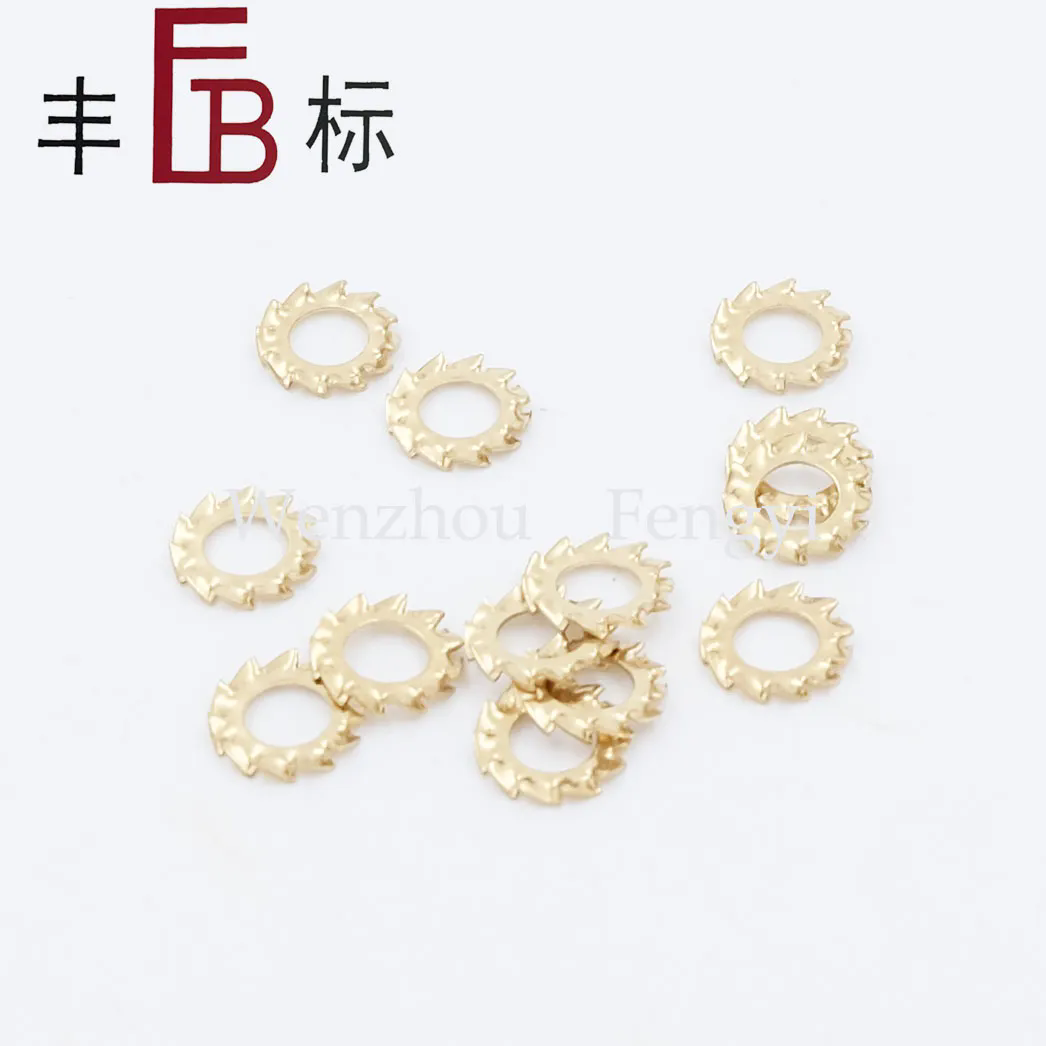Lock Washers: Essential Components for Secure and Reliable Fastening
2024-12-05
When it comes to securing mechanical parts, the importance of a reliable fastening system cannot be overstated. Whether you're assembling machinery, automotive components, or household appliances, ensuring that the connections stay tight and secure over time is crucial. This is where lock washers come in. These simple yet effective components play a significant role in preventing fasteners from loosening due to vibration or torque. In this blog, we will explore what lock washers are, their types, and why they are essential for creating secure and long-lasting connections.
What are Lock Washers?
Lock washers are a type of washer used in conjunction with nuts and bolts to prevent them from loosening. Typically made of metal, these washers are designed with a unique shape or feature that increases friction between the fastener and the surface it is attached to. This added friction helps prevent the fastener from loosening under vibration or external forces. Lock washers come in various shapes and sizes, each serving different purposes and applications.
In mechanical assemblies, lock washers are essential for maintaining tightness and preventing failure due to loosening, which can lead to serious damage or safety issues. These washers are often used in machinery, automotive systems, electrical equipment, and any other application where movement or vibration is a concern.
Types of Lock Washers
There are several types of lock washers, each designed to address specific fastening needs. Some of the most common types include:
1. External Tooth Lock Washers: These washers have teeth that extend outward, allowing them to dig into the material surface and create additional grip. The external tooth design is particularly useful for soft materials, such as wood or plastic, as it helps to prevent slippage.
2. Internal Tooth Lock Washers: Similar to external tooth washers, these feature teeth that point inward. They are typically used with smaller fasteners and are ideal for applications where space is limited. Internal tooth lock washers provide excellent resistance against loosening and are commonly used in electrical assemblies.
3. Split Lock Washers: Split lock washers are among the most widely recognized types of lock washers. These washers are circular in shape, with a split or gap along the circumference. When the washer is compressed between the nut and the surface, the split creates tension, which helps to maintain the tightness of the fastener. Split lock washers are commonly used in automotive and industrial applications due to their simplicity and effectiveness.
4. Wave Washers: Wave washers are designed with a wavy shape, and they provide a spring-like effect. This helps absorb shock and reduces the likelihood of the fastener loosening under vibration. Wave washers are often used in high-vibration environments, such as in the automotive or aerospace industries.
5. Helical Spring Lock Washers: These washers have a coiled spring-like design that applies constant pressure to the fastener. The helical design helps to distribute force evenly, making it particularly effective at preventing loosening in high-stress applications.
Why are Lock Washers Important?
Lock washers are crucial for ensuring the integrity and safety of mechanical connections. Here's why they are important in so many applications:
1. Prevention of Loosening: One of the primary functions of lock washers is to prevent fasteners from loosening over time. In applications where vibrations, shocks, or torque are involved, traditional washers may not provide enough resistance to keep fasteners tight. Lock washers, with their unique designs, create additional friction and tension that effectively prevent loosening.
2. Enhanced Safety: When fasteners become loose, it can result in dangerous consequences, such as the failure of critical machinery, engine malfunctions, or compromised structural integrity. Lock washers help mitigate the risk of such failures by ensuring that the fasteners remain securely in place.
3. Long-Term Reliability: Lock washers contribute to the long-term reliability of mechanical systems. By reducing the chances of loosening, these washers help extend the lifespan of both the fasteners and the parts they secure. This leads to fewer maintenance needs and a lower risk of costly repairs.
4. Cost-Effectiveness: While lock washers are a small and inexpensive component, their ability to prevent fasteners from loosening can save manufacturers and end-users significant amounts of money. By reducing the likelihood of failures, lock washers minimize downtime, reduce maintenance costs, and improve the overall efficiency of mechanical systems.
5. Improved Performance: In high-stress or high-vibration applications, such as automotive engines or heavy machinery, the use of lock washers ensures that parts remain securely fastened, which is essential for optimal performance. A loose fastener can lead to misalignments, reduced efficiency, and increased wear and tear on components.
Applications of Lock Washers
Lock washers are used in a wide range of industries and applications where secure fastening is crucial. Some of the key industries that rely on lock washers include:
1. Automotive Industry: Lock washers are commonly used in automotive assemblies, including engines, suspension systems, and transmissions. They help ensure that critical components stay securely fastened despite the constant vibrations and forces exerted on the vehicle.
2. Aerospace: In the aerospace industry, where safety and reliability are paramount, lock washers are used to prevent loosening in components exposed to high speeds, extreme temperatures, and vibrations. They are used in engines, landing gear, and other essential parts.
3. Manufacturing: Lock washers are widely used in industrial machinery and equipment to prevent fasteners from loosening due to constant movement or vibrations. They help ensure the durability and safety of machinery parts.
4. Electronics: Lock washers are often used in electrical assemblies, particularly in applications where precise connections are required. Internal tooth lock washers, for example, are commonly used in circuit boards and connectors.
5. Construction: In construction, lock washers are used to secure fasteners in steel structures, machinery, and other critical infrastructure components. They provide an added level of security for components exposed to the elements and varying loads.
Conclusion
Lock washers are a simple yet highly effective solution for preventing fasteners from loosening in mechanical systems. Whether you're assembling an automotive engine, constructing a building, or designing electronic equipment, lock washers play a crucial role in ensuring the integrity and reliability of your fastened connections. Their versatility, cost-effectiveness, and ability to withstand vibration make them an essential component in various industries. By incorporating lock washers into your designs, you can enhance the performance and longevity of your products while reducing the risk of costly failures.



